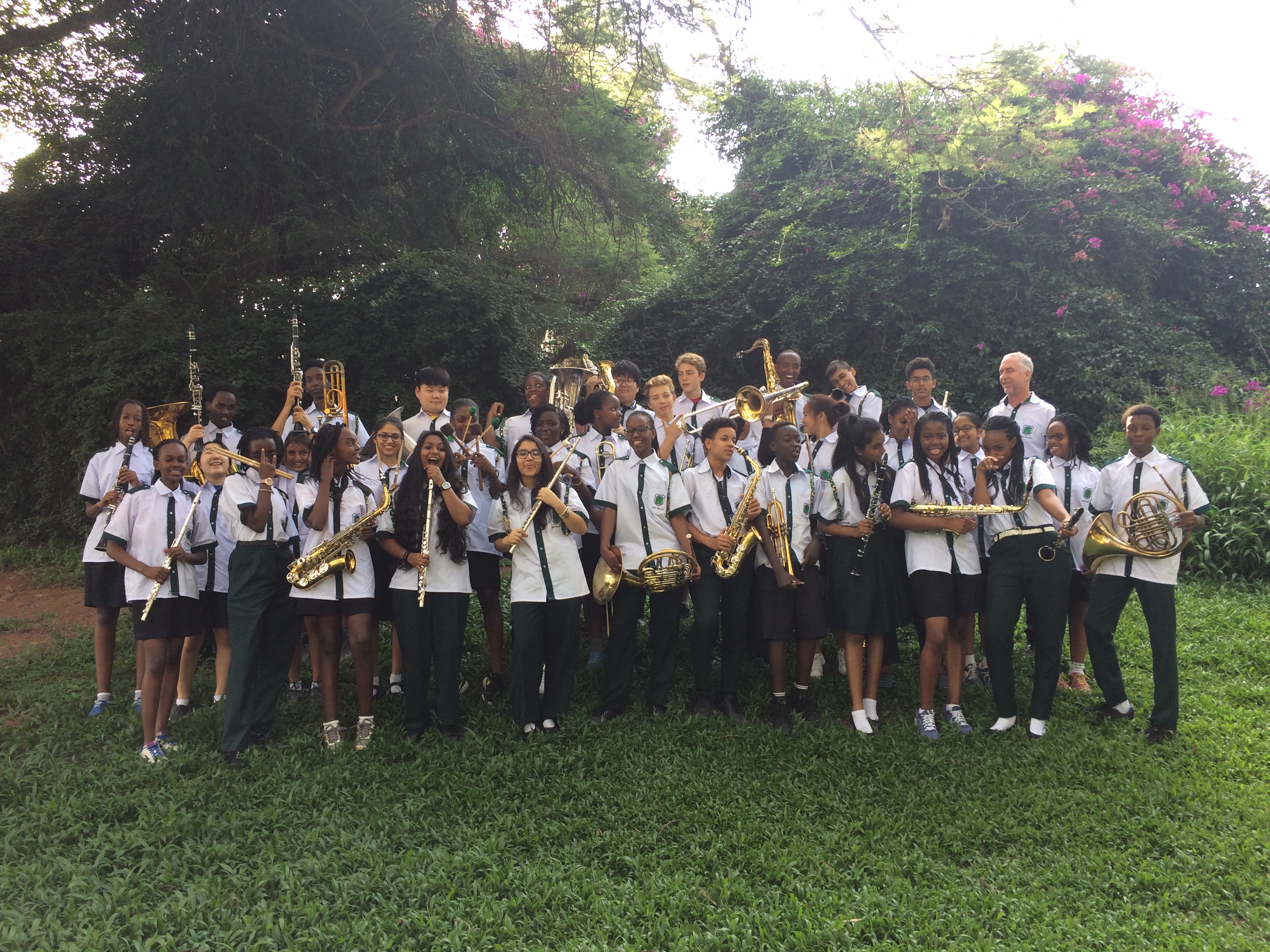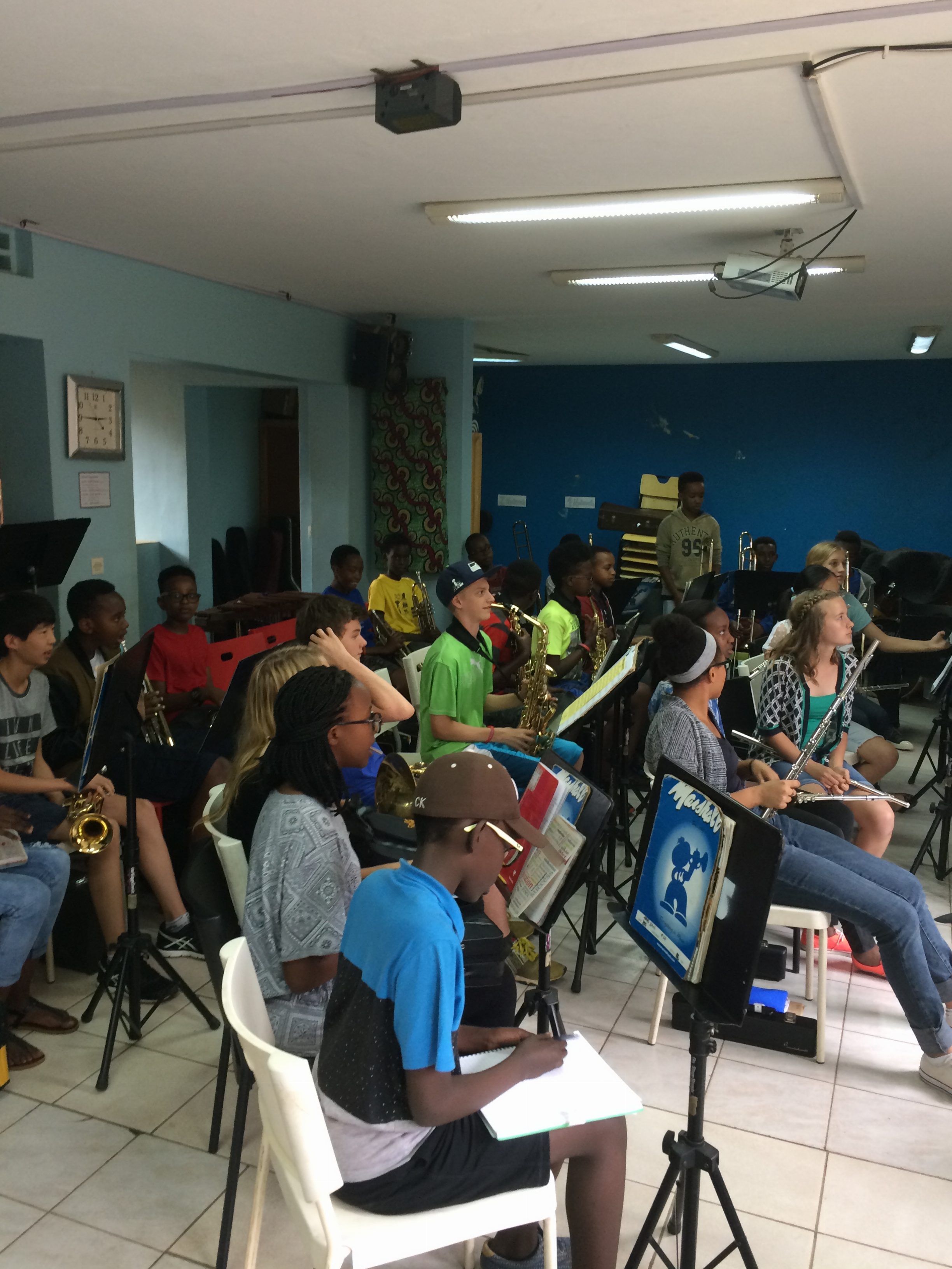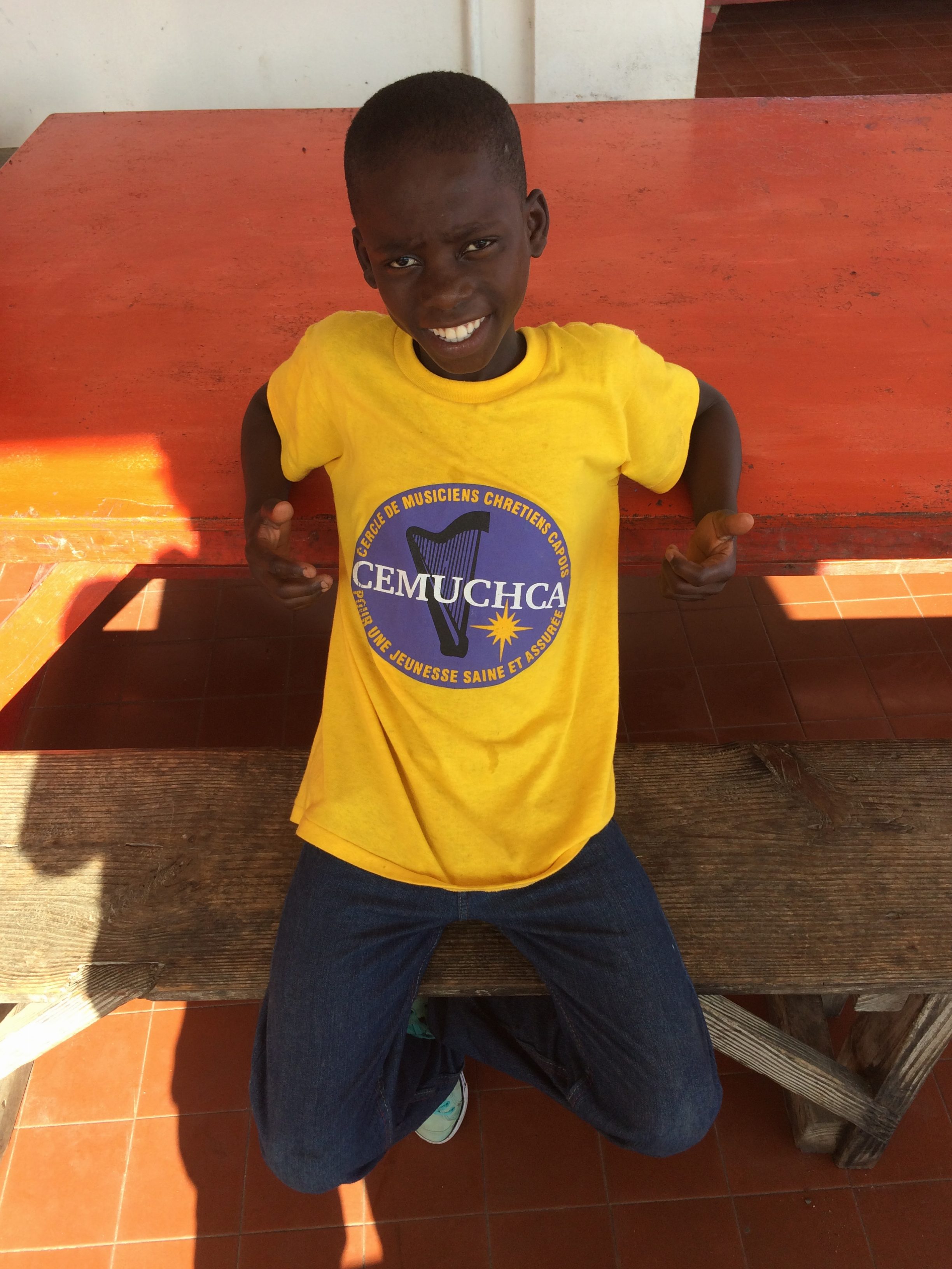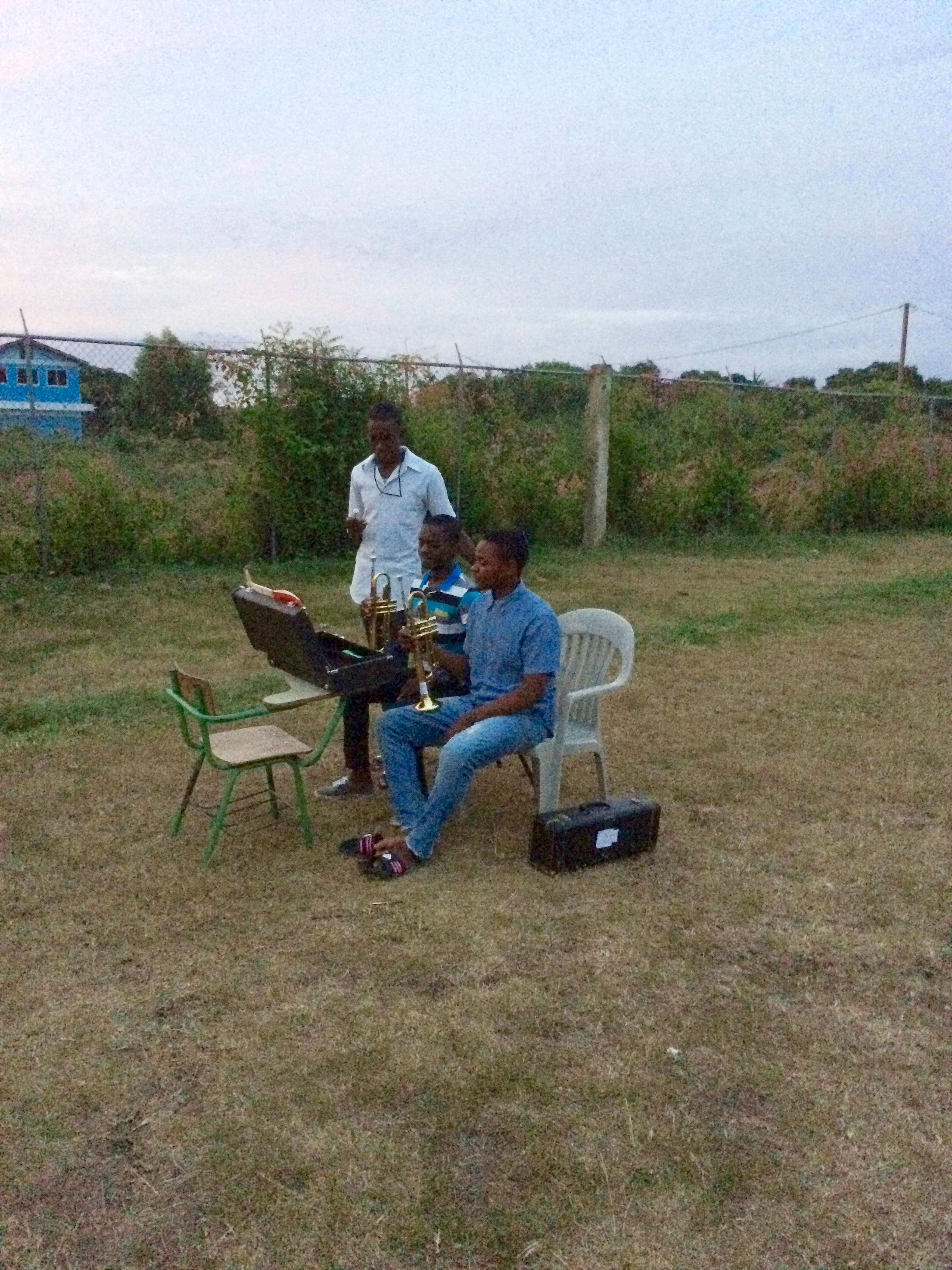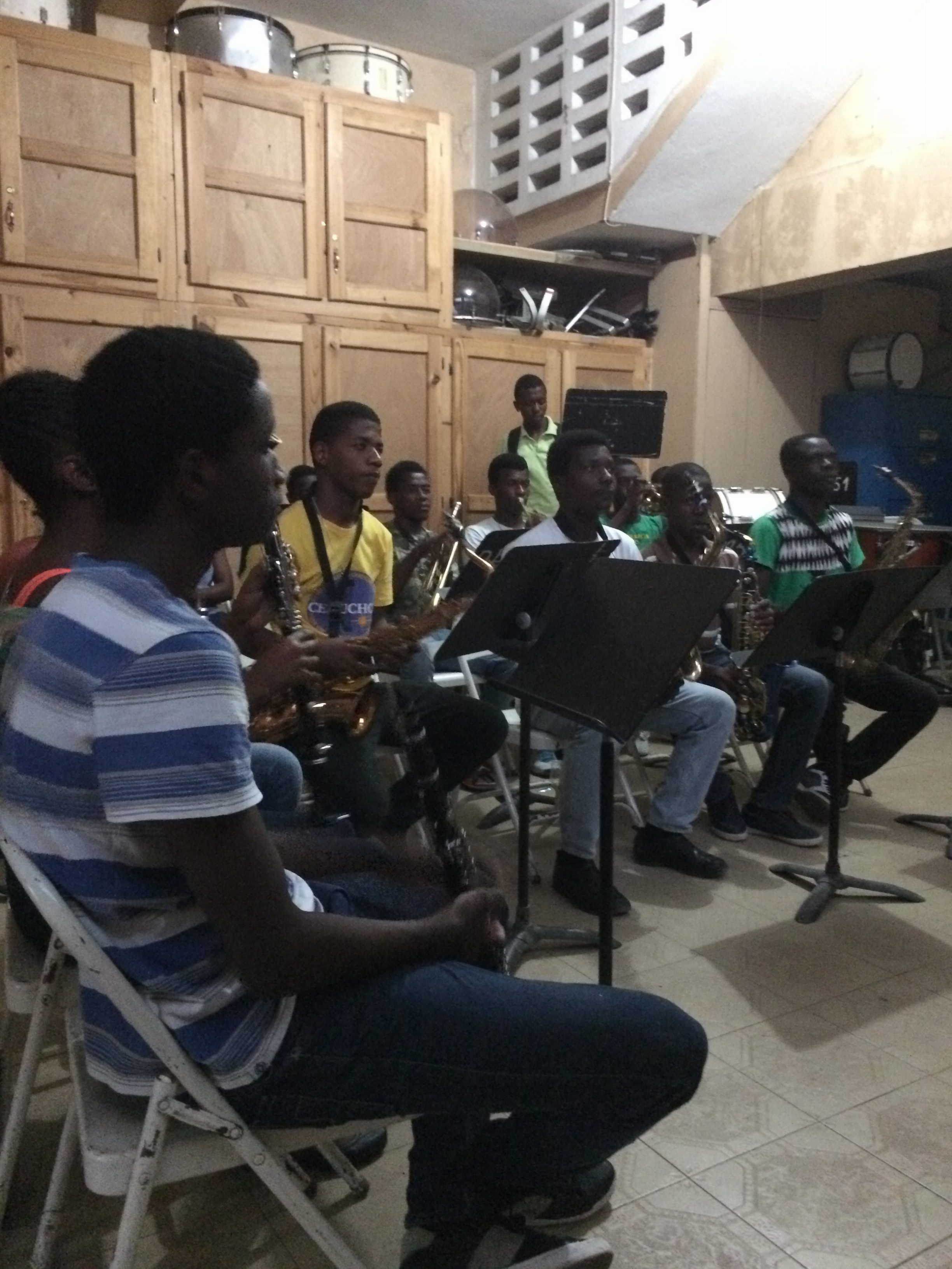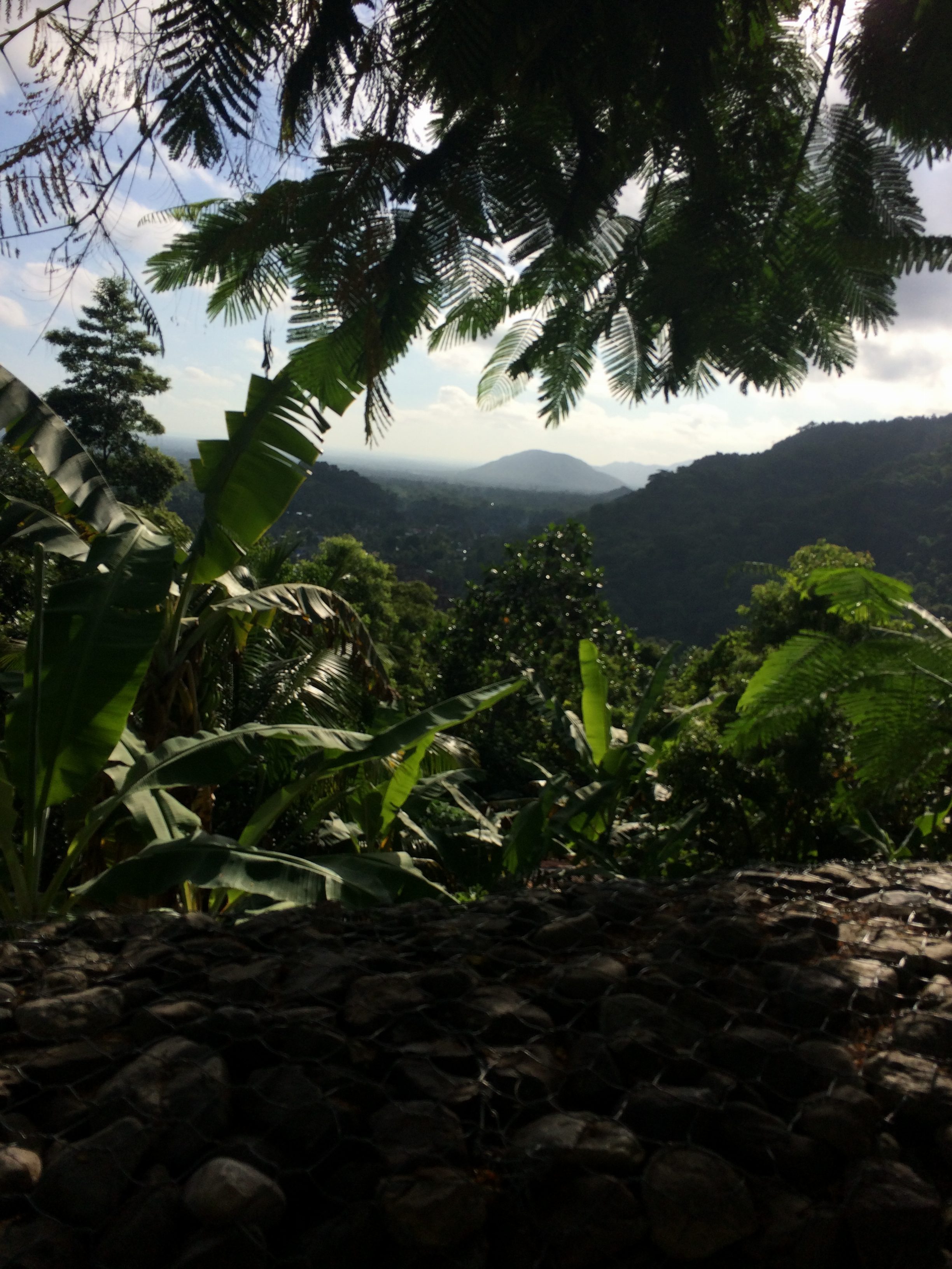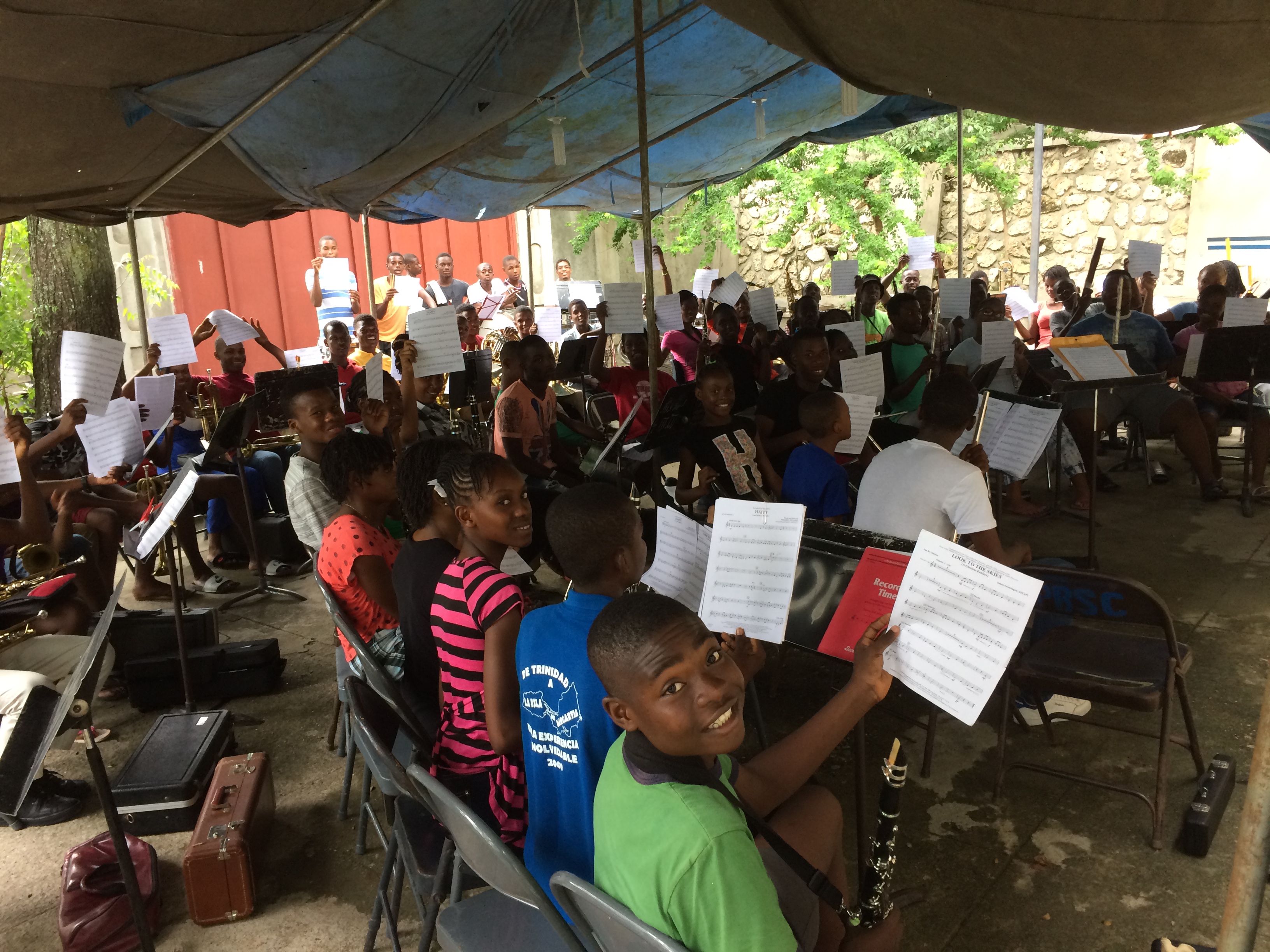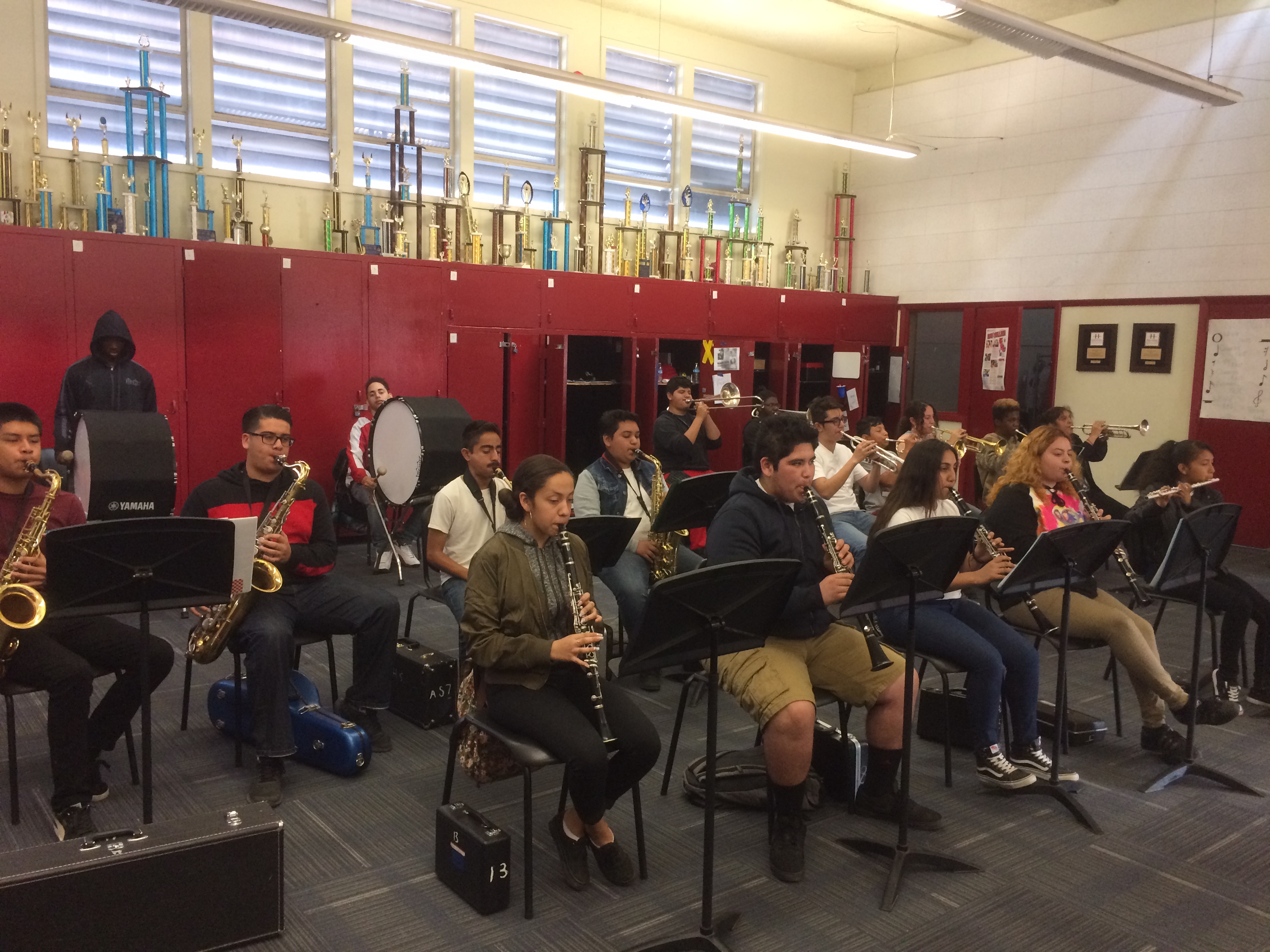In partnership with BLUMEhaiti.org . . .
“Founded in 1998, the Dessaix-Baptiste Music School was created to offer the children of Jacmel a positive alternative to violence, prostitution, drugs and delinquency, to create the next generation of Haitian musicians, by giving them as good a formation in music as possible and to allow its students the possibility to earn their livelihoods through performance, teaching and composition.
After twelve years of existence, the Dessaix Baptiste Music School currently has 1160 students enrolled in a diverse group of classes, lessons and ensembles. From beginning solfege for the newest students to 3 bands, 3 orchestras, 2 jazz bands; lessons on all instruments; and theory and conducting classes as there are teachers available, there is a great deal of activity.
The music school has also provided for many street children in the city of Jacmel who come from very difficult circumstance in search of a better life. The children, often deserted by their parents who are incapable of feeding and educating them, frequently become beggars in the street or have very small business near the bus stations.
Currently, a large number of the students at the school under the age of 16 are what one could consider at-risk youth, coming from orphanages and youth group homes. They are fully integrated into the structure of the school without regard to social or economic status.
The school has an obligatory solfege class for all beginning students (at the moment, there are five levels meeting every Saturday for this instruction). In addition to scholarships for music study, over 140 children from the surrounding area from very disadvantaged backgrounds are also being fed and clothed by the school with the goal of giving these children the chance to earn their livelihoods and to become integrated into the general society.
Students receive a lesson each week and, depending on the instrument, also play in ensembles. There are three levels of orchestra, three levels of band, two levels of jazz band – the advanced groups are open to all by audition. There are regular recitals of students and staff and regular concerts with the various ensembles.
Because the administration of the Dessaix-Baptiste Music School realizes the importance of music education in the creation of a civil society, the school is actively supporting the creation of other music programs in the country.
In the area outside of Jacmel there are close to 700 students getting lessons and playing in ensembles in Marigot, Cayes Jacmel and, most recently, Coq Chant – all programs started by the DBMS and served by teachers of the school. Dessaix-Baptiste has also helped in the formation of schools elsewhere in the country including Cité Soleil and Godet in Kenscoff in or near Port-au-Prince, and Aux Cayes, Miragoane and Port Salut in the south through gifts of instruments (given by Food for the Poor to DBMS for this express purpose) and materials.
The school is just beginning to take advantage of existing technology with regular SKYPE lessons being set up with several teachers in the United States (if there are no technical difficulties). Though difficult (because of internet connection speeds), several teachers are also using the internet to expose their students to a large range of music.
The Dessaix-Baptiste Music School offers one of the few places in the country where students from all social classes and economic backgrounds can meet as equals. In Haiti’s very stratified society, this is of invaluable worth. Here a street child realizes that he or she has the potential to become a valuable, contributing member of civil society.
The vast majority of students at the school are unable to afford the very modest monthly fee of 200 Gourdes (about $5.00 US). The school is always seeking innovative ways to enable these students to continue their studies.
The current school building was gutted and extensively repaired by the Dessaix Baptist Music School (with the help of a large number of national and international entities – UNESCO, the European Union, the embassies of Taiwan and Japan, Food for the Poor, Save the Children, etc) before they moved in. Almost immediately, the school proved to be woefully inadequate for their needs. Looking towards the future, the administration of the Dessaix Baptiste Music School would like to be able to offer students from the region and the country the opportunity to acquire a university level music education. To this end, land has been purchased and plans have been drawn up for a School of the Arts and Culture in Jacmel.”
(Information was taken from blumehaiti.org: http://www.blumehaiti.org/dessaix-baptiste-music-school-jacmel.html)

